Although situated high on a hill on Wellington's inhospitable south coast, in the 1960s the Pines cabaret was a hospitable late-night venue when pubs closed at 6pm, and dining and dancing meant chicken in a basket meals, illicit drinking, floral skirts and black-tie tuxedos. Garth Young recalls some of the characters he played with during his 17 years leading the band at the Pines. The venue still operates from the same location, overlooking Cook Strait.

From early in Garth Young's stint at the Pines: on bongos, Bobby Little; on bass, Slim Dorward. The singer is Johnny Summers, who then had a residency at the club. - Don and Beatrice Peat
Garth Young recalls singer Johnny Summers, who had a residency at the Pines: “He did a lot of work with me in the early days including recording. He came from the Kapiti area, and had a great voice. His real Maori surname was Raumati, which translates as summertime.”
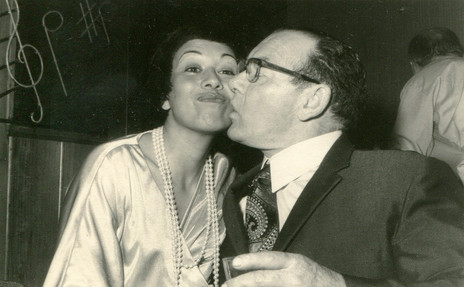
Maurine Young - Garth Young's wife - with Pat McCashin, proprietor of the Pines, Wellington - Don and Beatrice Peat
“The cops used to come and raid us all the time of course all the time. Pat [McCashin] hired someone to sit in the car at the bottom of the drive, with a wire all the way up, and a push button to ring on the stage, so then I’d [give a warning]. All the ladies had long dresses, so they could sit down and cover the booze, or any loose booze the waitresses could throw out the window, all in about half a minute. Then the cops’d come in ... Oh there are a lot of stories that can’t be repeated, about that joint.”
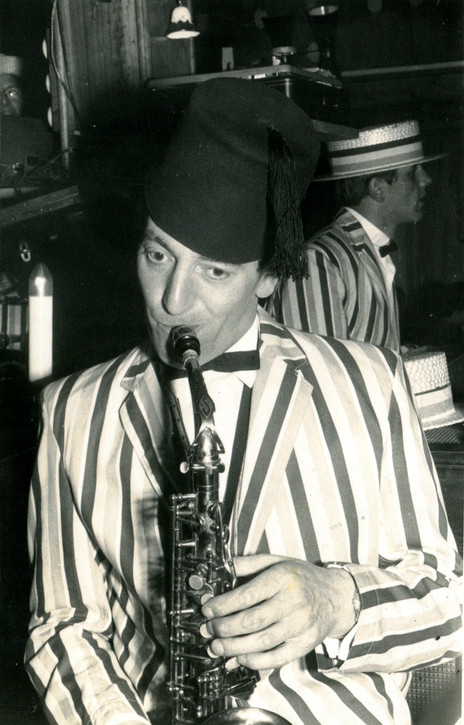
Hymie Levin, saxophonist with the Garth Young Trio at the Pines, Wellington, early 1960s - Don and Beatrice Peat
“Hymie was with me from the time he arrived in Wellington. He went to [Majestic Cabaret band leader] Don Richardson because his name was prominent and said, ‘I play sax,’ and Don said well, unfortunately I haven’t got room, get hold of either me or Pat McCashin ... then Hymie was there forever more, he was really good.”
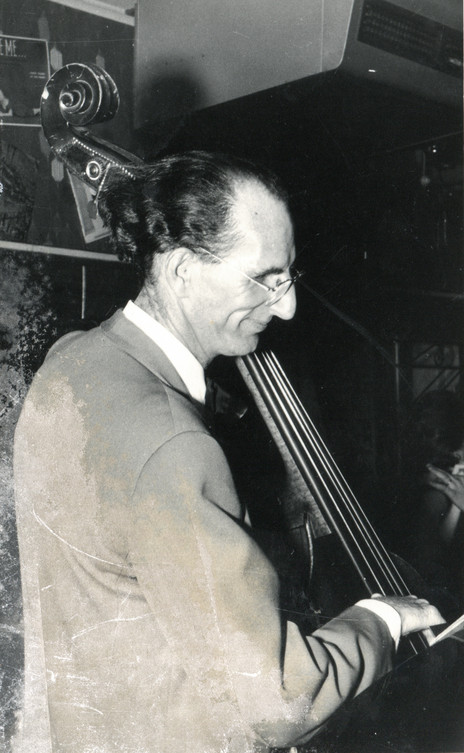
Slim Dorward, Garth Young's regular bassist in the early 1960s at the Pines, Wellington. Dorward was also in demand for recording sessions. - Don and Beatrice Peat
“Slim Dorward was a funny, eccentric and likeable man, and a good double bass player” - Wellington session guitarist Kevin Watson. “Poor old Slim,” recalled lap steel player Jim Carter in 2008, “his sight went on him. One night he finished playing at the side of the band stand, and he took his bass over to the wall and leaned it on nothing ... it went over and snapped the neck. A very interesting fellow, he could talk on all sorts of subjects.”
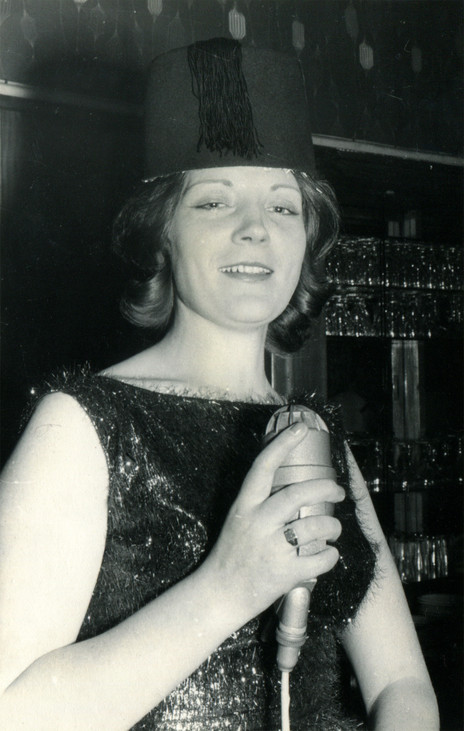
Mary Larkin guests in a fez; the Pines, Wellington, c1965. For HMV in 1966 she recorded The Pride of Tipperary, an album of Irish songs produced by Young. They followed this up with an EP, Ski Singalong and a singalong album, The Party's at Our Place Tonight - Don and Beatrice Peat
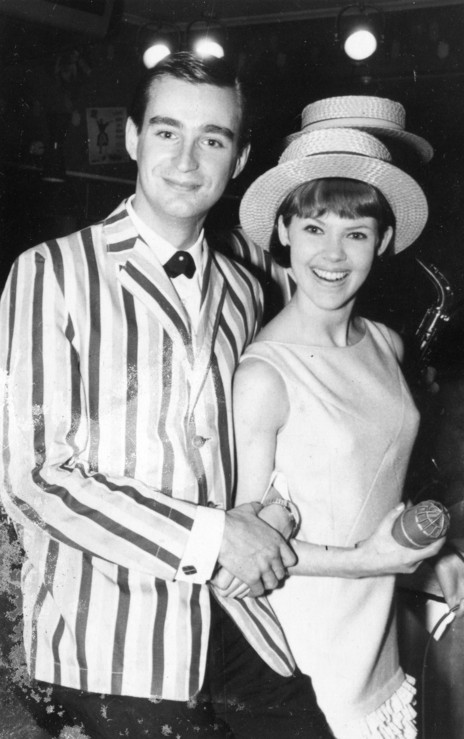
Lyn Barnett with Auckland singer Tony Fisher; at the Pines, Wellington, early 1960s - Don and Beatrice Peat
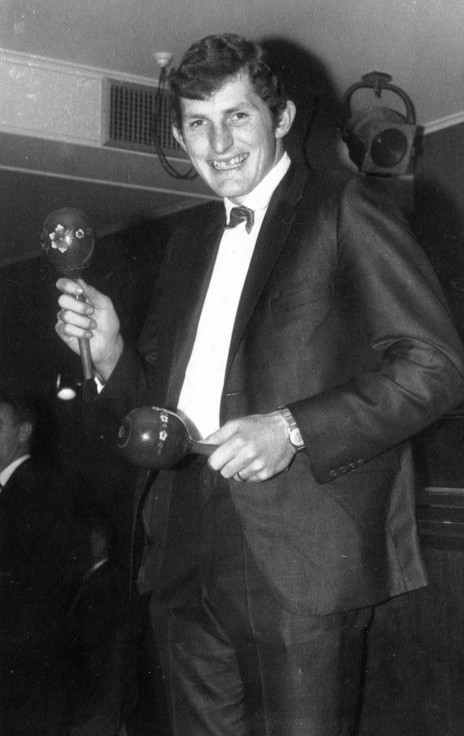
Peter Caulton was a resident singer at the Pines for some time in the early 1960s, then the Royal Oak. He went on to tour internationally, occasionally working in comedy. He reappeared in the mid-70s as the singer of NZ Breweries pub band Distillery. - Don and Beatrice Peat
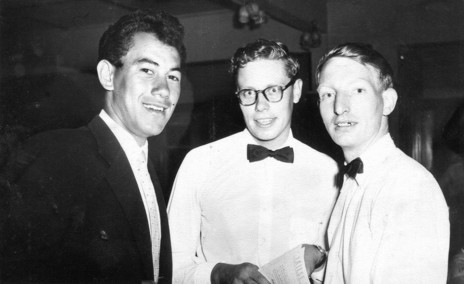
Johnny Summers, Garth Young and Scottish bass player Benny Dick, who also played in the National Orchestra; at the Pines, early 1960s.

Garth Young at the Pines, early 1960s, with Auckland singer Tony Fisher - Don and Beatrice Peat

Lou and Simon - Lou Clauson, left, and Simon Mehana - with Garth Young at the keyboard, the Pines, Wellington, mid 1960s. - Don and Beatrice Peat
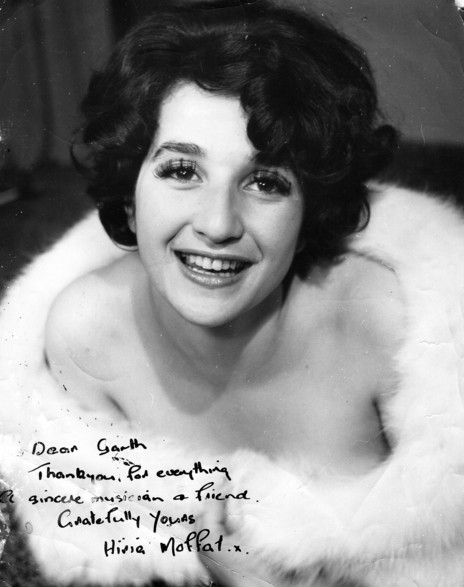
Hiria Moffat grew up in Timaru and was a prominent singer and performer in the early 1960s. She would later tour the US and perform often in Las Vegas - M Vinsen
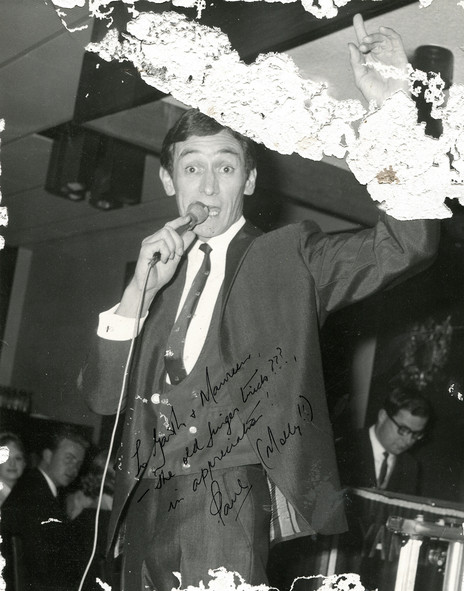
Paul Walden, mid 1960s. The damaged print is autographed for Garth Young and his wife Maurine
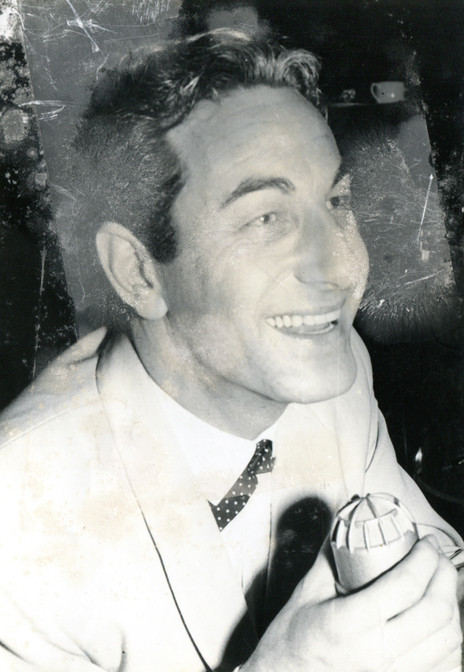
Noel McKay at the microphone, early 1960s - Don and Beatrice Peat
“Noel was so popular in Auckland, any club in the suburbs that was raising money for anything, they had to have Noel for the floor show. He was terribly risqué in those days but they thought he was fantastic. I remember we’d do four shows a night all over Auckland, we’d arrive and it’d be ‘Mr McKay, Mr McKay, oh yes, we’ve put the men’s toilets aside for Mr McKay to get changed.’ And his wife would say, ‘You don’t think he’s going to get changed in a fucking shit-house do you?’”

Three Australian dancers from the cast of 'My Fair Lady' who used to do a floor show at The Pines while they were based in Wellington
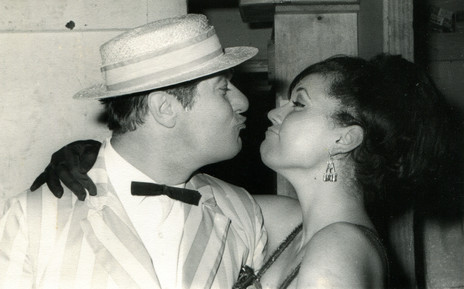
Bernie Gamet and Bridget Allen, two singers at the Pines
“A lot of the entertainers used to end up at The Pines at the end of the night, just to pop in and socialise and maybe since a couple of songs if they wanted to. Whoever was in town would go out there – like Dinah Lee, whoever, Paul Walden – it was the sort of place to go. So people never knew what they were going to see because that wasn’t advertised. People who’d been in town to do recording, they’re come out afterwards to have a few drinks, they were very welcome. I never pressured them to sing, but if they felt like having a song …”
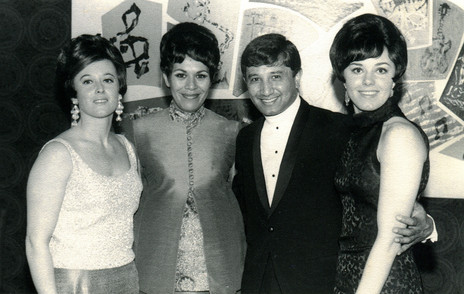
Mary Larkin, Maurine Young, and Ronnie Daverne. The woman on the right is his girlfriend. At the Pines, mid-1960s. - Don and Beatrice Peat
“Ronnie was half Maori, half Indian, I think, from round Levin way, very smooth guy, nice guy. That's his girlfriend, Laura, from the Manawatu.”

An early 1970s version of the Garth Young trio, the Pines, Wellington - Don and Beatrice Peat
“We never had any [fights] at The Pines, it was all fun. Pat [McCashin], later on in the nights, used to go round with a beer glass, and they used to call me Mother Young – or he did – and he’d say have you got a drink for Mother, and they’d all put some brandy in, or Scotch or whatever they had on the table, a bit of wine or some beer. He’d come back and I had to drink this and it would end up I’d be standing on my head on top of this honky-tonk piano and they’d try to shake me off. All these things used to happen.”